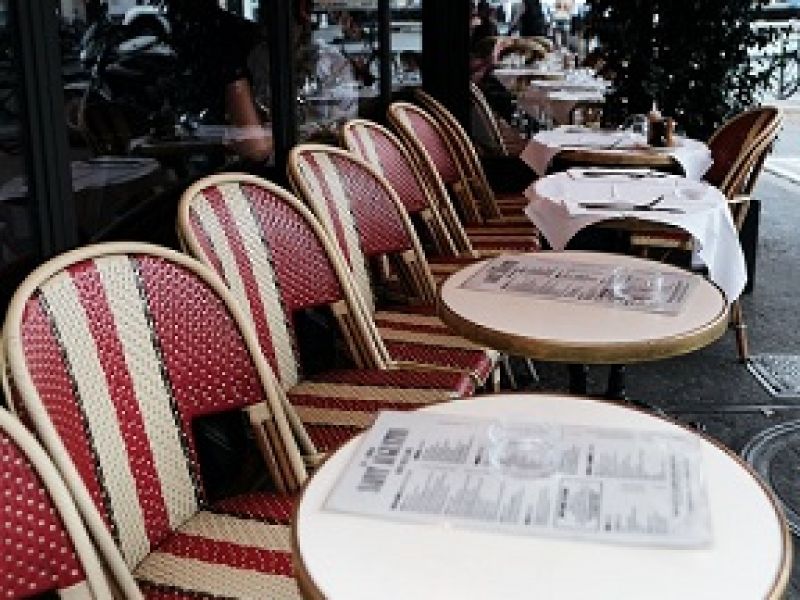Take it from us: people love starting businesses in France. From its thriving economy to its rich cultural heritage, France offers tremendous opportunities for business growth, and an exciting life experience for entrepreneurs. Unfortunately, too many conflate their experiences as tourists with the realities of France as a market - and struggle to sell their products or services to a unique and discerning audience.
While a good product will have universal appeal, marketing doesn’t. Learning to effectively market your business in France requires a nuanced approach that takes into account the country's unique cultural, linguistic, and business practices. Read on below for some key strategies and insights to help you navigate the French market, and compete on an even-footing with the locals.
Do your research
Before launching your marketing efforts, it’s crucial that you gain a better understanding not just of the French market in general, but the market for your particular product or service. Local market research firms or online polling can help you to identify local consumer preferences, while some French language googling and trawling of popular marketplaces will help to reveal your direct competitors.
It’s also important to appreciate the regional variations within France. Consumer behaviour and preferences can differ between urban and rural areas: a retail business in Paris will look very different to one in Angers, while a food business in Lyon will be held to particularly high standards. The best tip is not to try and outdo French businesses at what they’re already good at, but bring something new to the table - and something that you’ve proven the French market (and your specific locale) will like.
Navigate the language
One of the fundamental aspects of marketing in France is localisation. While consumers in all countries appreciate businesses that make an effort to adapt to their culture and language, this is particularly true in France, which has both a fierce national pride and English proficiency below some of its European neighbours.
Related article: How to start a business in France in 8 steps
Be sure to translate all of your marketing materials, including your website, product descriptions, and advertising campaigns, into French. Rather than just running them through language translators such as DeepL or Google Translate, work with locals to ensure that the translations are accurate, reflect the nuances of the language, so you don’t make any linguistic or cultural faux pas.
Formatting errors are perhaps the most common mistakes in French. French grammar rules that trip people up include putting the euros symbol after a price, using a space instead of a comma for numbers in the thousands, and using a comma instead of a full stop for decimal places. Getting the little things right will help to build trust and credibility with your target audience, and avoid sinking your business before it’s left the dock.
Leverage digital marketing
As in most countries, social media plays a major role in reaching French consumers. Leverage familiar social media platforms such as YouTube, Facebook, Instagram, Snapchat, Twitter and LinkedIn to engage with your audience, and find the content that they’re interested in. A good place to start is often the profiles of local competitors, and the people interacting with their content. This will give you an idea of what you’re up against, how well the style and quality of their content is working, and what your target audience is looking for.
Creating localised content is key: not just in terms of writing in French, but in understanding the nuances of the language. The vocabulary you use is likely to change dramatically depending on your audience, and using slang in the wrong way will immediately out you as an interloper. Think too about the type of content you want to share, and how sustainable this is. Sharing relevant industry news will help to plug gaps in your schedule, but takes the focus off your brand, while encouraging user generated content with things like hashtags will only work once you’ve built an audience. And be careful not to spend inordinate amounts of time posting on social media, especially if the likes don’t translate into leads or sales. Instead of being caught in the rabbit hole of being boosted by thumbs ups without the boost in your business bank account, balance your social media with other marketing strategies to reach your target audience.
Build relationships
French consumers value personal relationships, and companies value trust in business dealings. To integrate and ingratiate yourself, networking and building connections are both essential. On the business side, you’ll want to attend industry events, trade shows, and conferences to meet potential clients, partners, and influencers. Developing a strong network of contacts early on will help both with your business's visibility and reputation.
On the customer side, it’s generally best to accentuate your USPs while also demonstrating your investment in France, and your understanding of the market. While trading on your origins can be helpful if your country has a good reputation for that type of product, most people’s inclination will always be to shop local. Ultimately, it should be the quality of your products or services that does the talking, without relying on your point of origin as a hallmark of quality.
Be mindful of French culture and traditions
France actually has fewer public holidays than you might expect, with only Labour Day (Fête du Travail) offering mandatory paid leave. However, incorporating holidays such as this or Bastille Day into your marketing can be an effective way to reach a French audience. Christmas is an equally big event in France, but has some distinct differences from the UK and other western nations. Cards and crackers aren’t common in France, while the big family meal tends to take place on Christmas Eve, rather than Christmas Day. And any attempt to market around Boxing Day is likely to be met with a distinct Gallic shrug! New Years Eve is also a big event and is often marked by people sending “Bonne Année” cards.
Getting a handle on French culture is also important. Working with a local translator will help, as will partnering with local influencers or organisations. This can not only help to avoid cultural faux pas, but also demonstrate your commitment to long-term success in the country. One tradition that has often been trumpeted is not to use any English in your advertising, but this is starting to fall by the wayside, at least with the younger generation. If your Anglophone status is part of your product, then this might offer that distinct draw for certain customers, however, doing so will also draw attention to your status as a foreign business - so if you do opt to do this, it’s important to show you understand the market in other ways.
Prioritise quality and sophistication
While the extent to which this matters will depend on your audience, being ‘made in France’ is a hallmark of quality - raising the bar for foreign products being marketed to French customers. Emphasising the craftsmanship, attention to detail, and superior quality of your products or services without disparaging local products can help, as can taking advantage of local talent to make your products in France.
Related article: How To Start a Holiday Cottage or Gîte Business in France
Highlighting any certifications, awards, or endorsements that your business has obtained is a great way to introduce them to the French market, as these often hold significant weight in people’s purchasing decisions. If your product or company as a whole has a long history, then highlighting your age and provenance is also a way to build trust and respect.
Consider local advertising platforms
While digital marketing has finally eclipsed its forebear in France, traditional advertising still has its place. The traditional media advertising spend amounted to 8.1 billion euros in 2022, with TV and even newspapers still boasting high viewerships and readerships respectively. Indeed, the value of TV advertising has arguably increased due to the legalisation of addressable TV in 2020, where TV advertising can now be targeted along geographic lines, among other factors.
Explore local advertising platforms such as newspapers, magazines, and radio stations to reach both broader and more specific audiences. Working with a local PR or advertising firm may help to hone in on the most appropriate medium, as well as highlight any nuances in how to advertise to different regions and demographics. With digital media being so dominant elsewhere, France’s landscape is both richer and more complex - meaning both more opportunities and more potential pitfalls.
Be mindful of legal and regulatory requirements
Although there have been great strides in making businesses feel more welcome in France, French law can still be tricky to navigate. This applies to marketing as well as starting a business, with the ARPP (Autorité de Régulation Professionnelle de la Publicité) responsible for approving all advertising in the country.
Related article: How to pay tax in France for expats and entrepreneurs
Ensure that your marketing activities comply with French laws and regulations, and familiarise yourself with the ARPP’s advertising standards. You should also be mindful of data protection laws (namely GDPR) and consumer rights, which are particularly strong in France. Seek legal advice if necessary to avoid any issues, and ensure your marketing campaigns are fully compliant, as any problems could cause reputational and financial damage.
Successfully marketing your business in France requires a strategic and culturally sensitive approach. By understanding the unique characteristics of the French market, tailoring your marketing efforts to local preferences, and building strong relationships, you can effectively promote your business - seizing the abundant opportunities available in this incredible country. For more information about how to start a business in France, you can download our free guide below.







